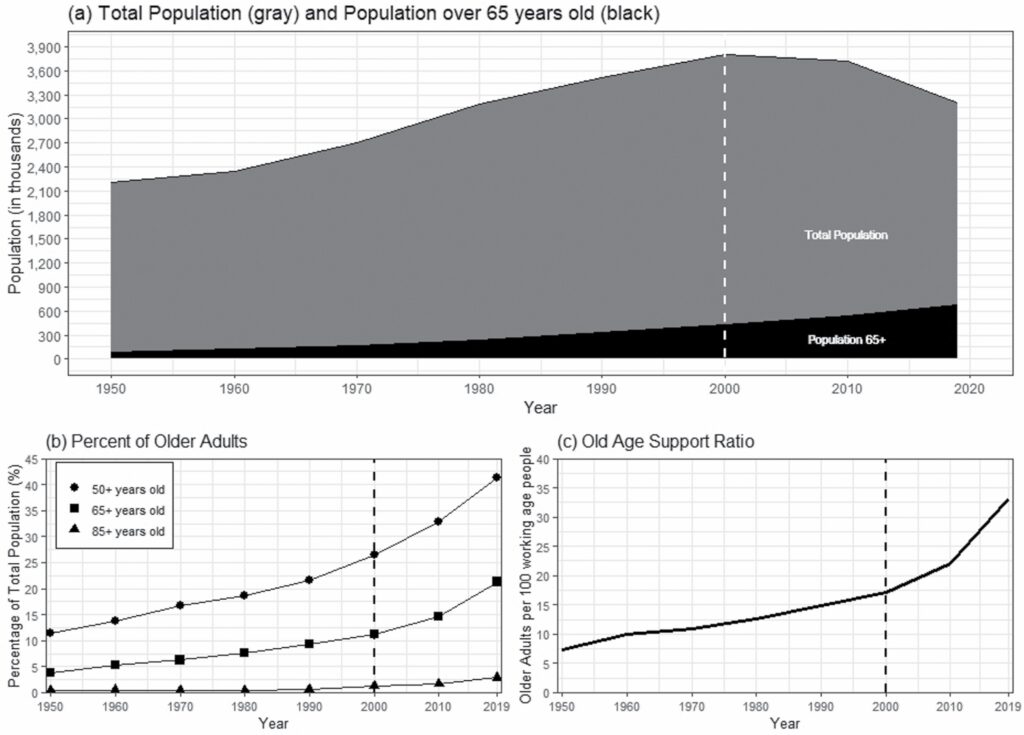Puerto Rico’s population is aging. People over 65 now make up more than 21% of the population. In the United States as a whole, the figure is 16% — still an aging population, but not quite as high a percentage. In fact, if Puerto Rico were a country, it would have the 10th highest average age of all the nations in the world.
Aging in Puerto Rico is different from aging in the states. For one thing, the mass exodus of working age people from Puerto Rico has left the Island’s elderly with too few people to care for the older residents. The chart below, from The Gerontologist, shows the pattern.
The large outmigration from Puerto Rico is the direct result of the inequalities that go with being an unincorporated territory. Just as all territories that have become states have seen increases in their populations, Puerto Rico can expect to see a change in population patterns as a state.
Benefits
Residents of Puerto Rico aren’t eligible for SSI, which is designed for elderly, needy people.
Medicare and Medicaid are available in Puerto Rico, but the funding is far lower and it is capped. That means that it does not expand when the needs increase. Also, residents of Puerto Rico are ineligible for the low income subsidy, which provides cost-sharing and premium assistance to low income Medicare recipients who use Part D, the prescription drug element of Medicare.
States are admitted on an equal footing with all existing states. As a state, Puerto Rico will be eligible for the same benefits as U.S. citizens in the states.
Health
Older Puerto Ricans are more likely to have health problems than those living in states. Among Americans over 65 across the nation, 29.2% have diabetes. One third of Puerto Rico’s elderly have this condition. Older Puerto Ricans are 19% more likely to have high blood pressure than Americans in the states. This kind of difference can be seen for other chronic diseases as well.
At the same time that needs are greater in Puerto Rico, the health care system is less robust. Puerto Rico’s healthcare system is often described as “fragile.” There is a shortage of doctors, healthcare professionals are not paid as well as in the states, the infrastructure creates problems with transportation to healthcare facilities, and uneven funding makes it difficult for healthcare facilities and communities to plan for the future.
Statehood will even out the inequities of funding and repair the health care system.
As a state, Puerto Rico can expect — because this has happened for every territory that has become a state so far — greater prosperity. The poverty level of Puerto Rico is one of the main reasons for the health disparities.
Statehood will protect the elderly
As a state, Puerto Rico will be in a stronger position to care for her elderly residents. This is yet another reason to support statehood.








No responses yet